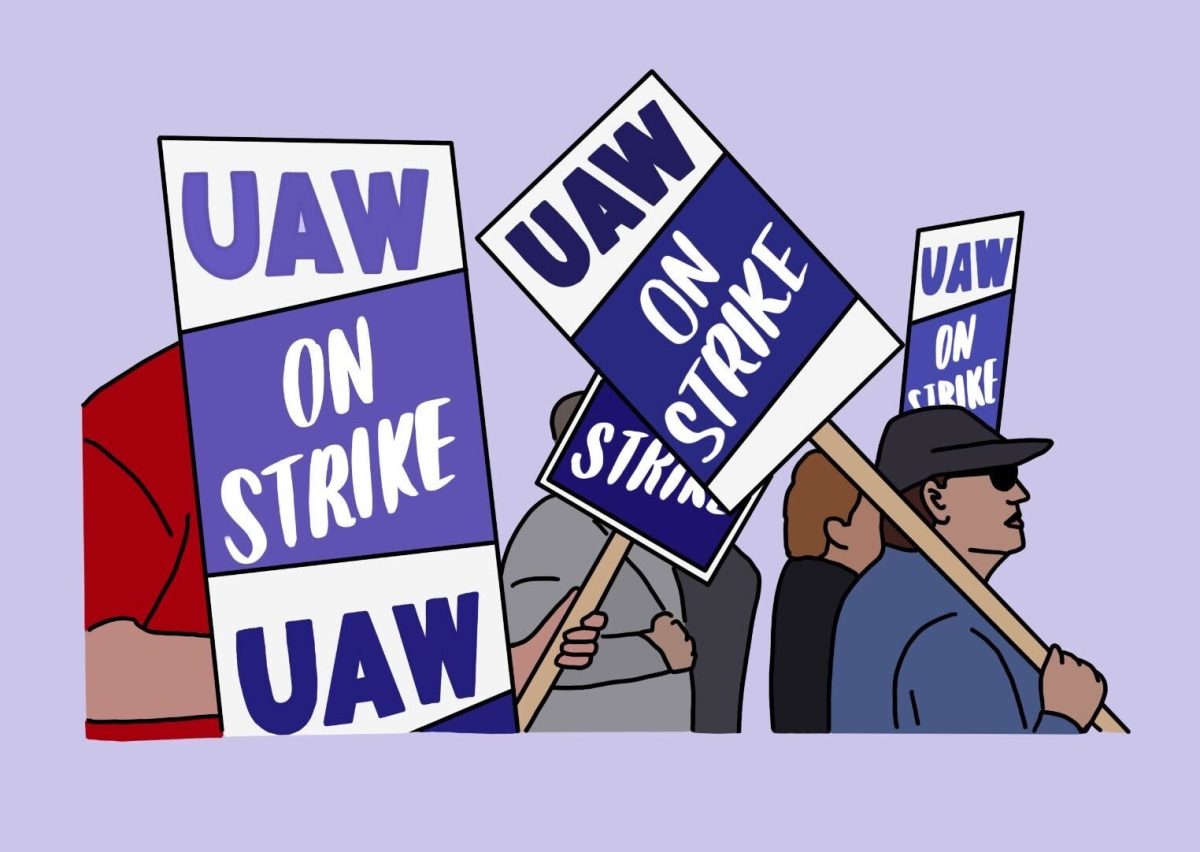Since Sept. 15, the UAW has been on strike against the country’s three unionized auto manufacturing companies: Ford, General Motors (GM), and Stellantis. The strike officially began when workers could not reach a deal with leaders of unionized auto manufacturing companies, demanding higher wages, reinstation of benefits, shorter work weeks, and worker protections against plant shutdowns.
The UAW consists of nearly 145,000 workers employed across Ford, GM, and Stellantis. This is the first time workers have gone on strike against all three major companies. The UAW employed a strategy of strike known as a “Stand-Up Strike,” which simultaneously throws these companies off target and allows union members to continue to have a paycheck. As the strike continued, more workers would be called on to stand up and join the strike.
The strike has already proved extremely costly for the companies with workers on strike. On Tuesday, Oct. 24, the UAW shut down production at a GM plant in Arlington, Texas– GM’s largest American factory. This is a continuation of the union’s strategy to target companies’ most profitable vehicles and factories.
The greatest issue is that auto companies aren’t valuing skilled laborers’ work. What auto workers are trained to do is essential, and worthy of fair compensation. This strike goes beyond an abstract dislike for big business and support for unions, or backing of big business and disliking unions. The UAW strike has real-world consequences. Without auto workers, people are unable to repair their cars, and eventually, there won’t be enough cars to sell, driving up already high car prices. These things are important within our society, and the people who create these products should be valued just as highly. Skilled workers are not cheap, and they deserve equitable compensation for their work.
For decades upon decades, skilled laborers’ work has been overlooked and underappreciated. Due to social hierarchies and standards that neglect and look down upon skilled professions, the valuable work that autoworkers do for millions of people is not given the respect and recognition it deserves. But beyond basic respect, these workers should be able to pay their bills, support a family, and remain comfortable and secure in their employment. That is the absolute least that these company executives could do for the people who are absolutely integral to their companies. When these companies are increasing their profits without increasing the wages of the workers that allow them to profit, something is wrong.
Ford’s offer, which proposes a 25% wage increase over a four-and-a-half-year contract, and starts with an initial 11% wage increase, has yet to be officially approved by the UAW However, it is the first sign of an end to the strike since it began over a month ago. While the offer does not address many of the union’s demands, it is certainly a step in the right direction on the companies’ part. But the union members should not be forced to settle for less than what they deserve, and what is economically feasible. Companies need to take the UAW strike seriously so that their workers will be able to resume their work for more equitable compensation, better benefits, and improved conditions.









